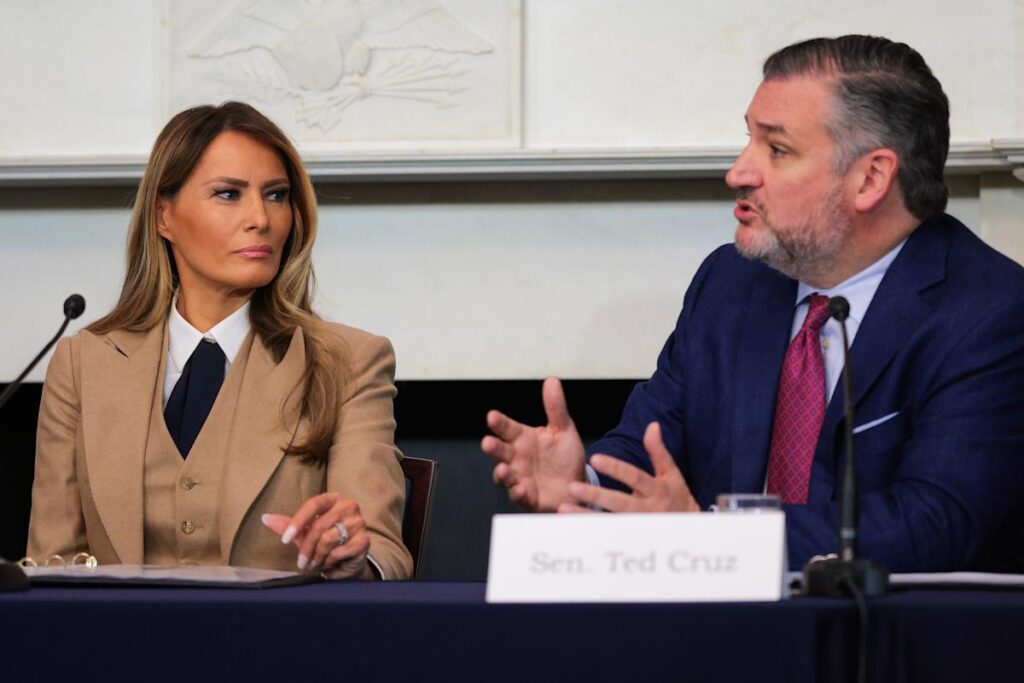Listen and subscribe to Opening Bid on Apple Podcasts, Spotify, YouTube, or wherever you find your favorite podcasts.
Republican Sen. Ted Cruz supports President Trump’s use of tariffs, just not for the long term.
«I fully support the president using the threat of tariffs to incentivize Mexico and Canada to help secure the border. Now that being said, my home state of Texas does an enormous amount of trade with Mexico and Canada. I don’t want to see the long-term economic policy being big tariffs against Mexico and Canada,» Cruz told me on Yahoo Finance’s Opening Bid podcast (video above; listen below).
«And so my hope is that those policies stay as an incentive rather than an ongoing feature of economic policy.»
The president has paused 25% duties on Canadian and Mexican imports that comply with the United States-Mexico-Canada agreement (USMCA). But Trump on Wednesday hit Canada with 25% tariffs on steel and aluminum, backing off a floated 50% duty.
On Thursday, Trump said that if the European Union didn’t remove a 50% tariff on whiskey, the US would place a 200% tariff on wine, champagne, and other alcoholic products.
Read more: What Trump’s tariffs mean for the economy and your wallet
Trump has implemented a second round of 10% duties on Chinese imports after instituting 10% in February.
The targeted countries wasted no time hitting back.
China unveiled a 15% tariff on US chicken, wheat, corn, and cotton products and an additional 10% tariff on sorghum, soybeans, pork, beef, seafood, fruits, vegetables and dairy products. The new tariffs from China began on Monday.
Canada announced a 25% tariff on 30 billion Canadian dollars of US imports.
As for Cruz, there is a lot at risk for his home state of Texas after brisk 3.9% GDP growth in 2024.
Mexico has been Texas’s biggest trade partner for the past 16 years. Texas’s top imports from Mexico include electric machinery, sound and TV equipment, various fuels, and medical and surgical equipment.
Texas houses about one-third of US refining capacity and refines crude oil imported from Canada and Mexico.
Businesses in the state may already be wary of the tariff pinch.
The latest Dallas Fed survey for February saw its production index — a barometer of state manufacturing conditions — plunge 21 points from January. The new orders index fell 11 points and the capacity utilization index declined 14 points.
Perceptions of broader business conditions worsened in February too.
«It’s clear in the next four years, we will see more tariffs than we had the previous four years,» Cruz said. «What I’ve urged him [the president] is two things. No. 1, focus on China. I have said for a long time that China poses the greatest geopolitical risk to the United States over the next hundred years. And so I want to see our economy delink from China.»
Story Continues



